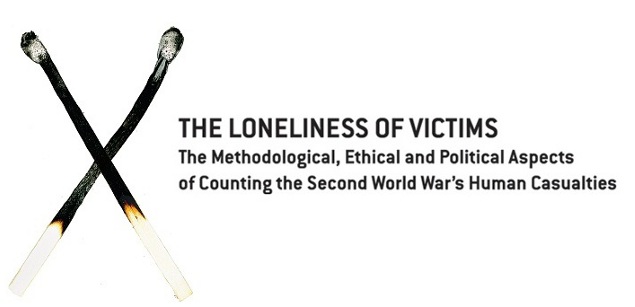European Network Remembrance and Solidarity in close partnership with the Hungarian Historical Society (Magyar Történelmi Társulat) and the German-Russian Museum (Deutsch-Russisches Museum Berlin-Karlshorst) organised “The Loneliness of Victims. The Methodological, Ethical and Political Aspects of Counting the Second World War’s Human Casualties” conference. The conference took place in December 2011 in Budapest and gathered participants from all over Europe.
The most recent research on the methodology and ethics of counting the victims of the Second World War was presented and discussed. This research focused on human losses inflicted both during the war and in its aftermath (forced migrations, losses in Prisoners Of War Camps, civilian internees, people who died after the war because of their wounds or severe health damage inflicted during the war). The immensity of the area inflicted by the Second World War, and the destruction of state structures made such research difficult or, in some cases, impossible. The other obstacle is that civilian casualties are poorly documented compared to military casualties, which makes the researches less accurate.
Over thirty researchers and scholars shared their experiences on methodology and the possible danger of political abuse of data by different regimes. The scholars were mainly from Central European countries and presented case studies from their research areas, such as: the former Soviet Union, Poland, Germany, Slovenia Romania, Hungary, Slovakia. The scholars strived to count the victims of concentration and POW camps and estimate civilian war casualties. They also analysed the main tendencies and challenges to the fair representation of statistics.


![cover image of Conference Report: The Loneliness of Victims. Methodological, Ethical and Political Aspects of Counting the Human Losses [...]](https://enrs.eu/media/cache/thumbnail_420_280/uploads/media/5c5ae6487fcdd-imgp6728.jpg)

